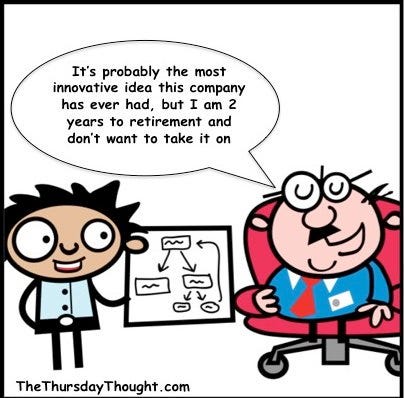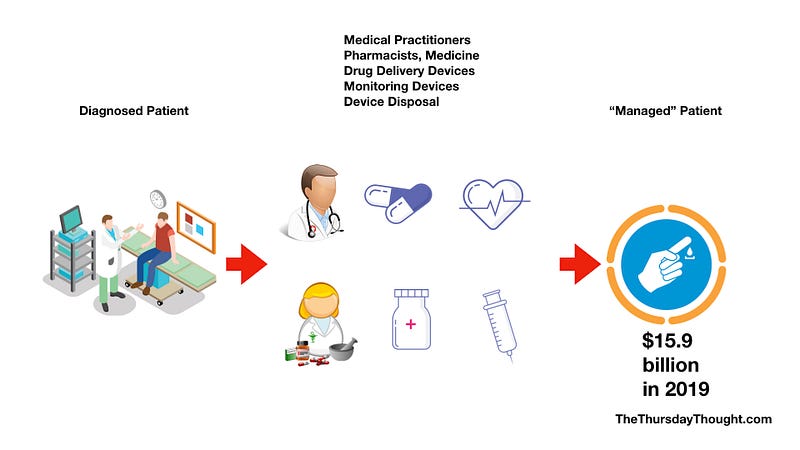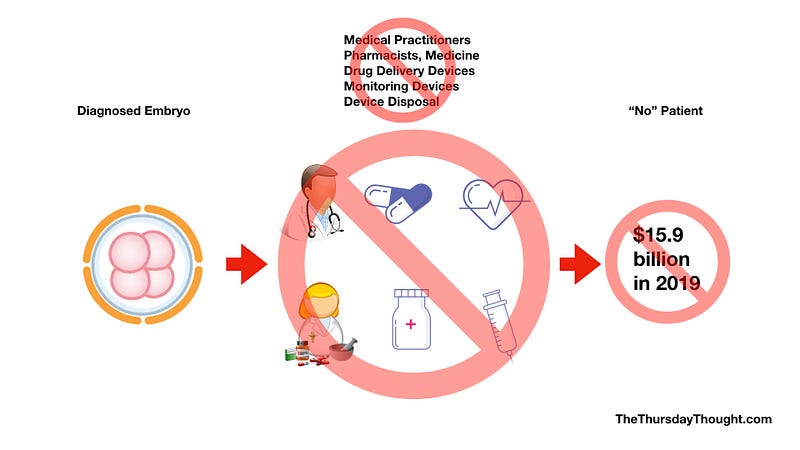
to nip (something) in the bud: To stop, cease, or prevent something at the beginning or early phase, before it becomes too difficult or unmanageable.
I watched Terminator 2 (1991) recently for our family movie night. The point I want to share is not the usual artificial intelligence story. If you remember Cyberdyne Systems is the corporation that created or led to the creation of Skynet in the Terminator universe. When Skynet became self-aware, it considered humanity as a threat (because of the attempts of the Cyberdyne scientists to “kill” it once it had gained self-awareness), and triggered the nuclear holocaust to remove the threat … us. In Terminator 2, time travel is possible and Skynet sends a Terminator back in time to nip the resistance in the bud by killing John Connor before he can lead the human resistance against Skynet. (This is great for all sequels, next Skynet comes after Sarah Connor, John’s mom, they could have come after the grandparents, but that would have been cheap!) The reason I share this story is to bring to mind the best way to end something is to ensure it doesn’t happen in the first place! Prevention is better than cure. As we all know, that is easier said than done.
“The person who fights for a dying cause is admired, supported and honoured. The person who fights for a new cause struggling to be born is misunderstood, reviled and attacked. Nothing is more difficult than taking the lead in a new order of things” — Dee Hock, CEO & Founder, Visa
The reasons people resist change are not always obvious. Business leaders often protect what they might lose rather than what they might gain. By reinventing a business, the existing business leaders may feel threatened. By introducing a fighter brand, the existing sales team may earn a smaller commission. By cannibalising yourself, you may just cannibalise yourself! This is one of the many psychological barriers to innovation; leaders feel safer safeguarding the dying cause than to risk reinventing a new order of things.

On this week’s Innovation Show, I spoke to Aubrey de Grey, about his mission to end age. While reading his book “Ending Aging”, I thought of the myriad repercussions of ending aging and age-related sicknesses. I considered how eliminating illness would spell progress for humanity, but signal a death blow for many industries related to illness. Take, for example, a U.S. citizen with diabetes.
The lifetime medical cost of a 40-year-old person with diabetes is $211,400. A recent study by Mordor Intelligence estimates the US diabetes device market to be worth $15.9 billion in 2019. While the key players in these industries deserve credit for their commitment to patient wellbeing, you can imagine the scene if the leader of a business who earns billions from diabetes care was to announce “Our next product is gene editing, so we can nip diabetes in the bud and remove markers diabetic genes in utero.” Mic drop, as the leader expects rapturous applause, but the crowd falls deathly silent (with a slow and awkward hand clap from an audience member who didn’t really understand the implications of what she said.)
Please see my graphic below, the figures involved are for illustration purposes only based on limited research to make my point. My point is by removing a sickness before it manifests, you also remove the market that is dependent on that sickness. Therein lies the mammoth challenge.

Below you can see the implication of bypassing a sickness rather than managing it.

We can now eliminate diabetes by editing the DNA of a human embryo just as a sperm fertilises an egg. This means there will be no need for billions of dollars of interventions because we can nip the sickness in the bud. If we can choose eye colour or hair colour, then opting that our children will not have an illness is an easy choice.
My point of this Thursday Thought is that the progress comes at a cost. The cost for nipping diabetes in the bud will be the disappearance of a multi-billion dollar industry and all those employed in that industry. The beneficiaries of that business will not give it up easily, even if it is in the name of progress and spells the end of suffering.
Some consequences will play out as expected, and some consequences will be unforeseen. If you are a changemaker in a business, it is worthwhile understanding what stands to be lost before even considering what may be gained. The status quo will always challenge the new order because the status quo profits from the existing order of things. Nothing is more difficult than taking the lead in a new order of things, even when it makes perfect sense.
If nipping diabetes in the bud feels like a big task, try ending age! Our guest on the Innovation show this week has taken on that challenge. We welcome Dr Aubrey de Grey, the author of Ending Aging: The Rejuvenation Breakthroughs That Could Reverse Human Aging in Our Lifetime .
Nearly all scientists who study the biology of aging agree that we will someday be able to slow down the aging process. Todays guest is perhaps the most bullish of all such researchers and believes that the key biomedical technology required to eliminate aging-derived debilitation and death — is now within reach.
In his book, he and his research assistant Michael Rae describe the details of this biotechnology. They explain that the aging of the human body, just like the aging of man-made machines, results from an accumulation of various types of damage. As with man-made machines, this damage can periodically be repaired, leading to an indefinite extension of the machine’s fully functional lifetime, just as is routinely done with classic cars.
We already know what types of damage accumulate in the human body, and we are moving rapidly toward the comprehensive development of technologies to remove that damage.
By demystifying aging and its postponement for the nonspecialist reader, our guest systematically dismantles the fatalist presumption that aging will forever defeat the efforts of medical science.
Have a listen:
Soundcloud https://lnkd.in/gBbTTuF
Spotify http://spoti.fi/2rXnAF4
iTunes https://apple.co/2gFvFbO
Tunein http://bit.ly/2rRwDad
iHeart http://bit.ly/2E4fhfl
More about Aubrey and Sens here: https://www.sens.org/